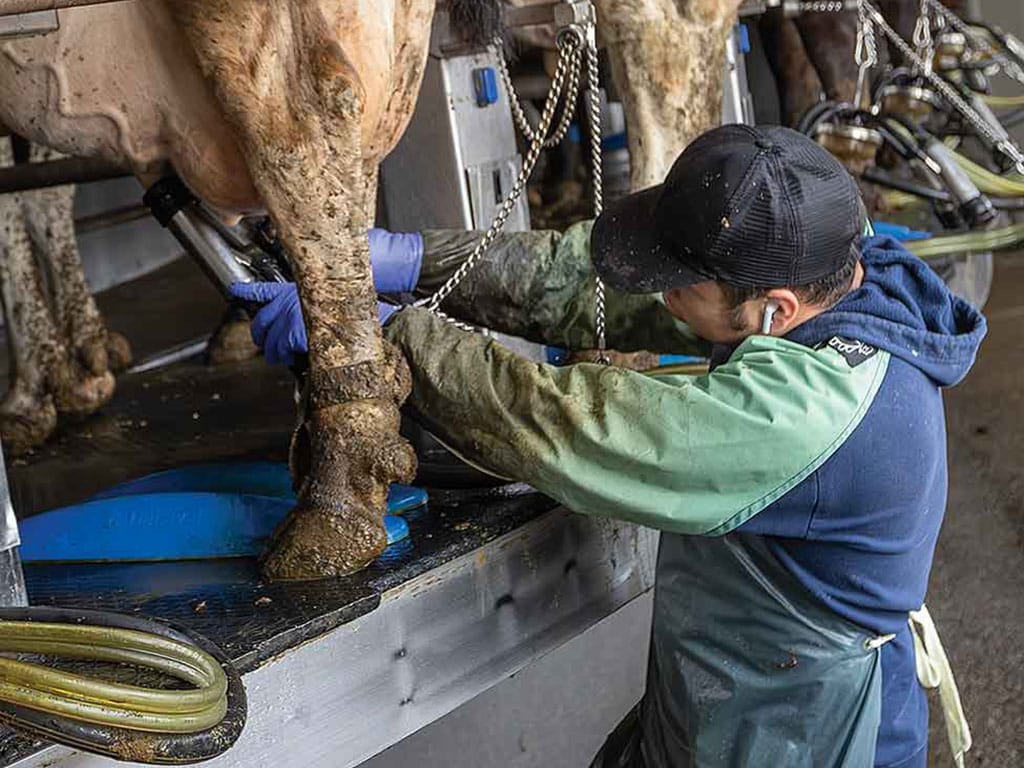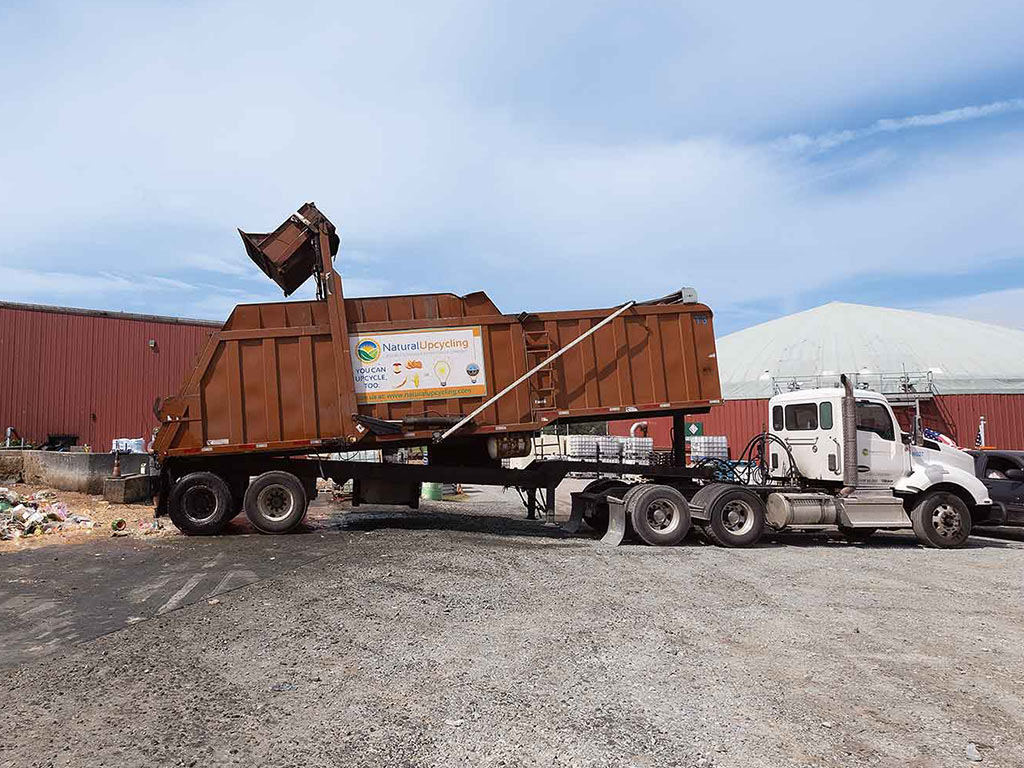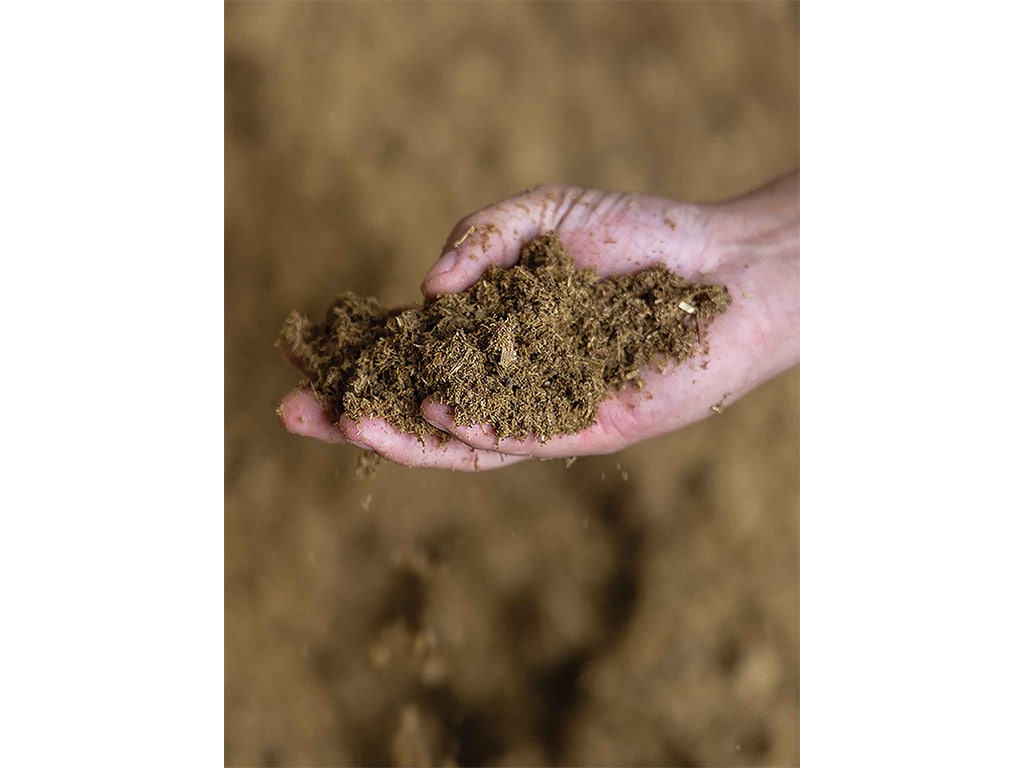Agriculture, Specialty/Niche December 01, 2024
Off the Court
College coaching skills transfer to dairy management.
by Lorne McClinton
Sometimes a new career doesn't live up to expectations. Jack Klapper's goal was to become a college basketball coach when he graduated from college. He'd caught a few breaks and was on his way. But after his umpteenth night alone in his hotel room washing his underwear in the sink, the reality of the college coach lifestyle had worn a little thin. Maybe it was time to move back home to Linwood, New York, and join the management team at Noblehurst Farms—his family's diversified dairy operation.
"I really have a true love for cows," Klapper says. "So to be able to come and be around my cows every single day was very intriguing to me. Being able to be outside every single day and work with my hands is also attractive.
Noblehurst Farms dates back to the early 1800s, and Klapper is very proud to be the seventh generation of the family to farm here. His ultimate goal though, if he one day has children, is to make sure that an opportunity exists for them at the farm, too.
He credits the long term success of their operations to the skill of his ancestors. He says they made a lot of really smart business decisions. So continuing his grandfather's and father's legacy is something that is very, very important to him.
Today, at just 27, Klapper has become a co-owner of the family's wide-ranging enterprises. While his family had embarked on this business model back in the 1940s, their core enterprise still remains their 2,000-head Holstein-Jersey cross milkers.
About 95 percent of their 4,000 acres are devoted to cash crops and forages that are used in their dairy ration. Likewise, the majority of the 550 kWh per day of the electricity they generate with their methane digester is used internally in their various operations. They enrich its manure feedstock with food waste collected from across 17 states.
Above. Klapper found many of the skills he learned to motivate basketball players were directly transferable to managing their workforce. Their core business is their 2,000 Holstein-Jersey cross milkers. They use a methane digester to generate the electricity using their manure and food waste they collect across 17 states.
Transferable skills. While Klapper's career path is radically different from the one he set out on, he says the time he spent coaching wasn't wasted. He says many of the people management and motivational skills he learned at the feet of great basketball coaches like Mike Krzyzewski, the Hall of Fame basketball coach at Duke University; Josh Pastner, the former head coach at Georgia Tech University; and Brian Earl at Cornell University, were directly applicable to managing a large dairy or a large, diversified business.
"Obviously, I don't have the whistle, and I'm not bouncing the ball anymore, but at the same time, so many of those coaching things still apply here," Klapper says. "Mike Krzyzewski, [for example] taught me the importance of building relationships. It's one thing to say 'hello' or 'buenos dias' to somebody every single morning, it's a whole other thing to be able to have an in-depth conversation with them about their wife and family."
He's religious about keeping a rolodex-type file on every employee. It's filled with personal information about them, including their wife and family. That way, he knows enough about an employee's life to be able to ask how their child's soccer game back in Mexico went last week. Each morning he makes a point of talking to one or two different guys and having an in-depth conversation with them. Every week or so he'll have had a chance to speak with all 35 full time employees in their farming ventures. It's a great relationship-building tool.
"Building relationships is how you foster a successful team environment," Klapper says. "Just something small that might seem insignificant, like knowing when their birthday is, can make a big difference. It takes a lot of time and a lot of work. You have to be authentic about it, but if your workers know you care about them, they will do anything in the world for you. In return we have developed a very good workforce here. Our employee turnover is almost zero. It barely ever happens here. It's certainly not common on dairy farms. I'm a true believer."
Klapper's future plans are to continue to increase their cow numbers and acquire land. But he has no intention of becoming a 25,000-cow mega dairy. Instead, his plan is to steadily grow while focusing on diversification to ensure they aren't putting all their eggs in one basket. "It's really important for the general public to know that everything we do here, we do with love," Klapper says. "We love our people. We love our land and we certainly love our cows." ‡
Read More

AGRICULTURE, FARM OPERATION
Both Sides Now
Big beef outfit branches off into Belties niche.

AGRICULTURE, EDUCATION
Legacy Wheat
How Turkey Red changed American agriculture.





